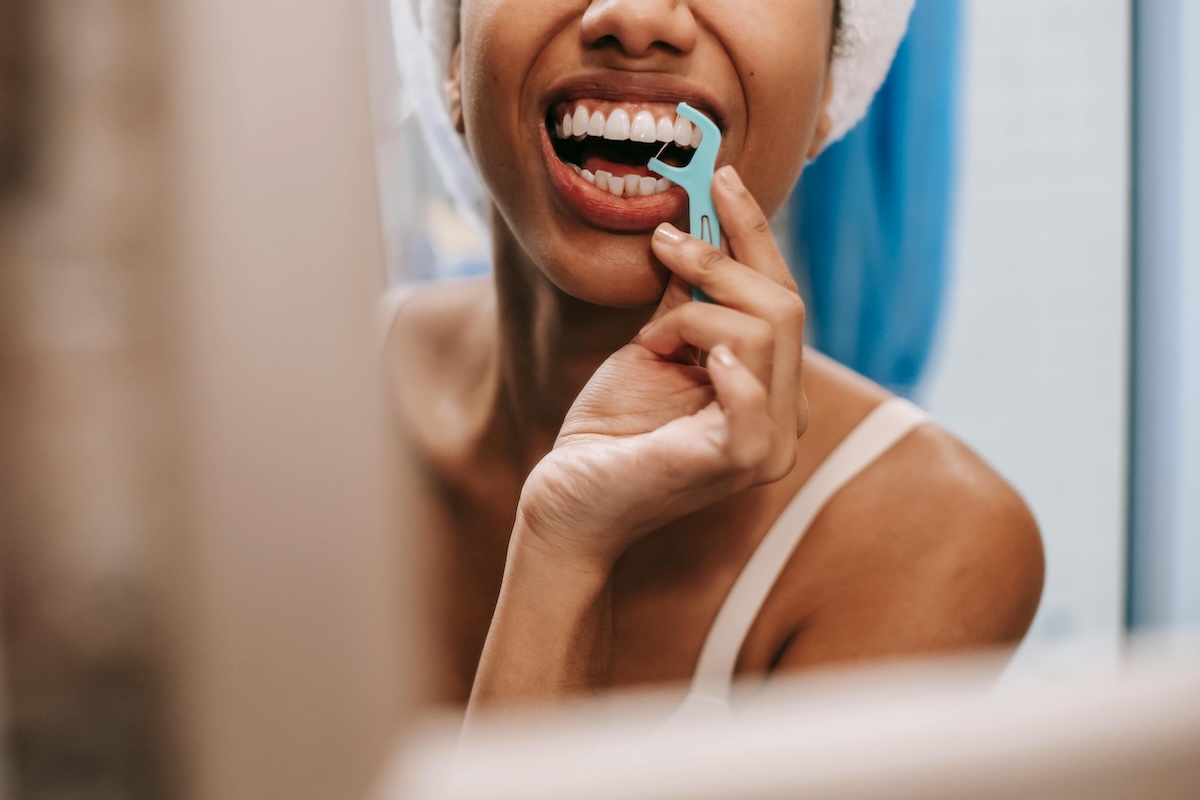Flossing is an essential part of practicing good oral health. While brushing is crucial for cleaning the surfaces of the teeth, flossing is crucial for cleaning food debris from all the nooks and crannies in between. It is the only way to effectively remove plaque and bacteria trapped between your teeth and below the gum line.
If left alone, this plaque and bacteria can build up and cause tooth decay, gum disease, and other health problems. Flossing helps maintain your teeth's structure and strength and may allow you to avoid complex dental work like fillings and root canals. The health of your teeth and mouth also impact the health of the rest of your body.
What happens if I don’t floss?
Failing to floss leaves food particles stuck between your teeth and gums that eventually break down into acids and sugars. Those compounds mix with saliva and leave a sticky, hard-to-remove build-up called plaque in those spaces. Over time, plaque will erode tooth enamel, which can result in cavities.
Once plaque accumulates and hardens, it is now tartar. Tartar can cause the gums to swell and bleed, and it can also cause gum diseases like gingivitis and periodontitis. Gum disease causes multiple oral and dental health issues like bad breath and premature tooth loss.
Gum infections can also contribute or exacerbate to other diseases. For example, it can make diabetes more difficult to manage due to spikes in blood glucose levels. Furthermore, if the bacteria from your mouth enter your bloodstream through an infection or cut, it can cause inflammation and blockages in blood vessels the heart or lungs.
Caring for Your Teeth and Gums
The American Dental Association (ADA) recommends brushing twice a day and flossing at least once a day. Pairing these habits with an antimicrobial mouthwash can also help, especially for patients with a history of gum disease.
When it comes to choosing the right floss, it’s all about what works best for you. Waxed or unwaxed floss, flavored or unflavored, there is no difference. You may also prefer picks, or water flossers. The ADA also works with some dental supply companies to test products and those that pass earn the ADA’s seal of approval, which is displayed on the product packaging. The ADA offers a convenient online database featuring approved products.
Regular dental checkups and cleanings help maintain good oral hygiene and prevent potential dental problems from developing into more serious issues. A dentist can identify signs of tooth decay, gum disease, or other oral health problems that may require treatment. They can also provide personalized advice for more effective home dental care and product recommendations to keep your teeth and gums healthy.
Bottom Line
Flossing is a crucial step in a healthy oral hygiene routine. Neglecting to floss can cause bad breath and lead to the buildup of harmful bacteria in the mouth, which can cause cavities, gum disease, and more serious health problems.
Good dental habits with dental checkups and cleanings can help you save money in the long run by preventing costly dental procedures. It only takes a few minutes each day to floss, but the benefits are significant for your overall oral health.
Schedule an appointment today so we can help you keep your smile healthy.
Frequently Asked Question (FAQs):
Is it really that bad if I skip flossing once in a while?
While the ADA recommends flossing once a day, we know that life happens. Sometimes you run out of time getting ready, run out of floss, or just plain forget. Not flossing becomes a problem when "once in a while" turns into a week or 2 at a time.
What are the early signs of gum disease?
Early (or mild) gum disease is known as gingivitis. Symptoms of this condition include:
- Red and/or swelled gums
- Bleeding gums especially during or after brushing or flossing
- Sensitive gums or sensitive teeth at the gum line
Can gum disease be reversed if I start flossing regularly?
Gum disease in the early stages is usually reversible, but your teeth will likely need more care than what you can do at home. A professional dental cleaning paired with more diligent care at home should have your gums healthy and disease-free. However, if your gum disease has progressed into periodontitis, only a dentist can treat it.
When should children start flossing?
The ADA recommends kids should begin flossing once they have two teeth touching each other. Parents are advised to complete this step until the child reaches 10 to 11 years old to ensure proper technique and effectiveness.

